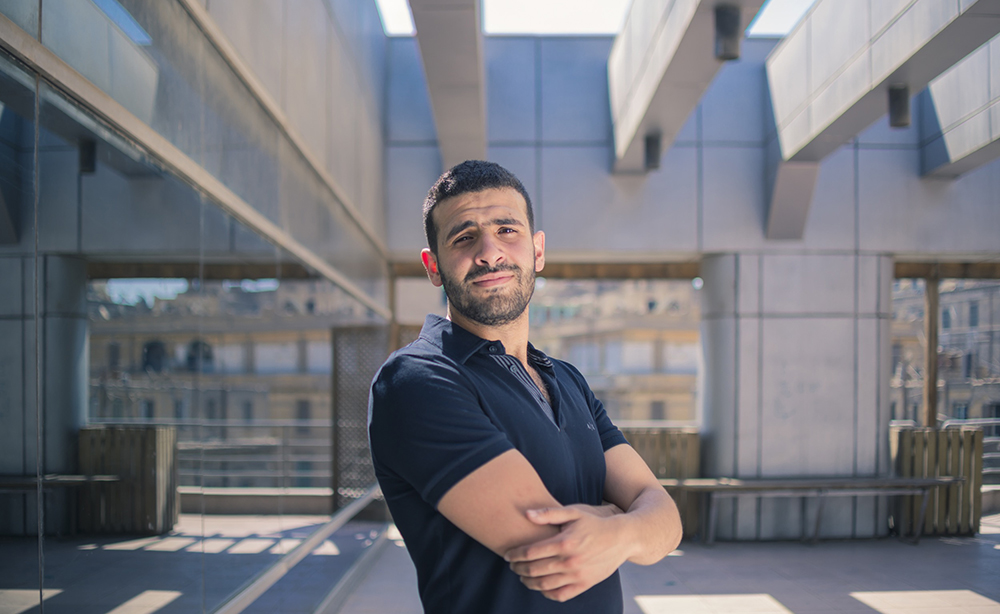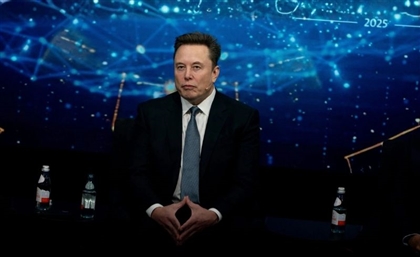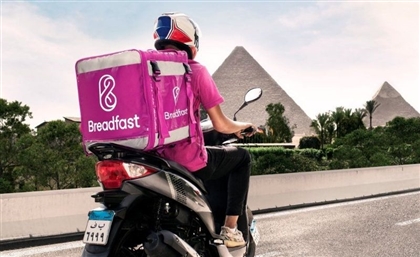Meet the Man Behind Swvl, the Startup That Just Landed $500,000 From Careem
In less than a year, he grew over 50,000 users for his young ride-sharing startup. Now, as he scores a massive fund from Careem, Mostafa Kandil unveils his plans to reinvent public transportation in one of the world's most populated countries.

Once you meet Mostafa Kandil, you just get it. At 21, he relocated to Dublin and decided he wanted to shift careers; At 23, he moved to Philippines and launched a company in a country he knew nothing about; and in less than 6 months, he launched Careem in 8 cities, including Hurghada, Istanbul, and Peshawar in Pakistan. Kandil is a titan and the globe, his playground.
“I don’t want to live, make money, and die; I want to leave a legacy,” says this fast-paced 24-year-old, who has now taken it upon himself to disrupt an industry that has traditionally been hogged by the public realm: mass public transportation - but here’s the hook: without a single fleet of buses.
Swvl, his less-than-a-year-old startup, has garnered over 50,000 users in three months, and is now making headlines across the region, after reaping a massive $500,000 investment from his former employer Careem, in the unicorn’s first ever investment in another company.
Striving to break the stigma associated with public transportation in a city that is drowning in its own smog, his company offers ‘public transport for millennials,’ leveraging on a crisis that most would only see as a missed chance: unused tourism buses.
“I had graduated in Petroleum engineering, but as I started working I hated it; I felt it was too stiff for me,” he begins, as he narrates the career shift in his early twenties that led him to Google MENA’s headquarters in Dublin, to the Philippines, and to eventually entirely reshape his path.
Is that how it all started?
Yes. It was 2014 and Rocket Internet was at its peak; they wanted to scale super-fast. They contacted me to join their Global Venture Developers Challenge, a programme where people work on an internship basis but have to launch entirely new companies. We were sent to a certain country with a budget and the goal to launch a business, scale it, and leave. So I went to the Philippines and launched a car classifies company called CarMoody. I had two partners and we managed to scale it to three cities, and grew it to become the biggest car classifies company in the country, in 6 months.
And did they mentor you?
No; it’s “you do or die.” If you don’t do well, you get fired. It was scary, because I was 21 and it was the first time I ran something and managed a team; especially in the Philippines, where people are difficult to deal with. But we started with a team of three and scaled it to 40 employees. Then I came back, had my last semester at the American University in Cairo (AUC); I worked at Sawari Ventures as an investment analyst for a while, and two years later, when Rocket Internet acquired Otlob, I joined them as the Head of Operations.
At 23? You climbed the career ladder very fast!
Yes (he smiles). In school, I had scores to get into any career, and my family wanted me to be either a doctor or a policeman, like my father. But I rebelled and went for engineering, so I was something of a disappointment to them. I did it for two years and I didn’t like it so much. I realized that you can make a lot of money, but in the end it is very technical and there is no innovation.

It seems you were pretty restless. What was the passion driving you throughout?
I’ve always wanted to create something of my own, something that I can pass on. I don’t want to live, make money and die; I want to leave a legacy. I felt the feeling of you creating something and growing it very quickly from scratch and taking it somewhere in no time is fascinating.
So I joined Otlob; we were three people and structured operations to increased efficiency by 400% in nine months. Then Careem reached out to me for market launching, so I joined them in Dubai in August 2016. They called it the SWAT team, which goes to troubled markets to fix them, or start companies from scratch. We re-structured Alexandria and launched four cities for them in one day.
At that point, I was also part of something called the Growth Team, which directly reports to the CEO [Mudassir Sheikha]. He is such an inspiration for me; he is insanely consistent and encourages you. I remember it was my first week and he came to me and said: “We are smart people; when I quit McKinsey [& Company], I knew I could come back. The same goes for you; if you lave Careem now to start something and fail, you can always come back.” That was on my first week. I kept meeting him every day, and something we used to check at the Growth Group was the average trip fare, which in Egypt was about 3-4 dollars. I knew that was a lot for an average Egyptian; so in February I decided I would leave to create something new.
I had a team in mind, so I partnered with Mahmoud Nouh and Ahmed Sabbah. Initially, what we had in mind was a food delivery company; we debated it and saw all the buses who were not being used because of the tourism crisis. Nest thing, we started building an MVP [Minimum Viable Product] and launched a month later.
You basically decided to tackle one of the most fundamental problems Egypt, and its 100 million people, are facing: public transportation. How were you going to do it?
We knew that there was a supply and demand problem. Demand in tourism was going down, and there were all these buses no one was using. So we thought of partnering with travel agencies to use their fleets of buses. The problem is that they were very unreliable; they just wouldn’t show up, or let me know an hour before the trip that they couldn’t come, so we’d have to run to a garage to get a bus just to save the day!
The idea was to build an alternative public transportation. The concept of the app is that it tells you how long it will take you to go from point A to point B, and how long you will have to walk; you pay online and you get a virtual boarding pass, and it navigates you to the nearest bus station.
Why do you call it the millennial form of transportation?
There is a stigma in public transportation that we wanted to break. So created a brand that is cool and that people can relate to, sort of a more exclusive format. We only speak in English, and at the beginning we launched only for AUC students; we positioned it as more of a premium service to target a different segment. Public transportation should be for everyone, and the idea is to scale to other markets. We are coming in between a private on-demand service that is too expensive, and a cheap service that is dysfunctional - this is 80 percent cheaper with the same quality and convenience.
How do you perceive this shift in services, which go from the public sector to the hands of private actors?
This something cool for the government. Around the world, public transportation is a loss-making machine. If you can take this load off the government and privatise it in a way that is super cheap and creates job opportunities, you are revitalising a sector. We now have a huge fleet; we have 40 routes and 300 buses on the road, but we don’t own any assets, so it’s super scalable.
You are also connecting areas where there are very few options in terms of transportation. How do you design the routes?
This sounds creepy, but we use the data we get through the app. The first routes were from AUC to test the market. But by analyzing every one of the 50,000 users and the routes they search, we take their locations, estimate how much they want to walk and use it data to design them. We’ve now started intercity transportation and the demand is insane. Going to Sahel can cost LE 1,000 and buses are terrible. We are actually doing a deal with Careem to offer packages to Sahel.
Let‘s talk about the investment. How did Careem approach you?
When we began negotiations, we agreed this would be a stand-alone project. We are working on partnering up with them on the most obvious things – such as the Sahel partnership - and co-marketing it. Careem comes in with a huge operational background, so we can reach out whenever we need consultancy, and they have their reach when it comes to government affairs; whereas we have the team and the skills.
Photography by @MO4Network’s #MO4Productions.
Photographer: Muhammed Mortada.






















